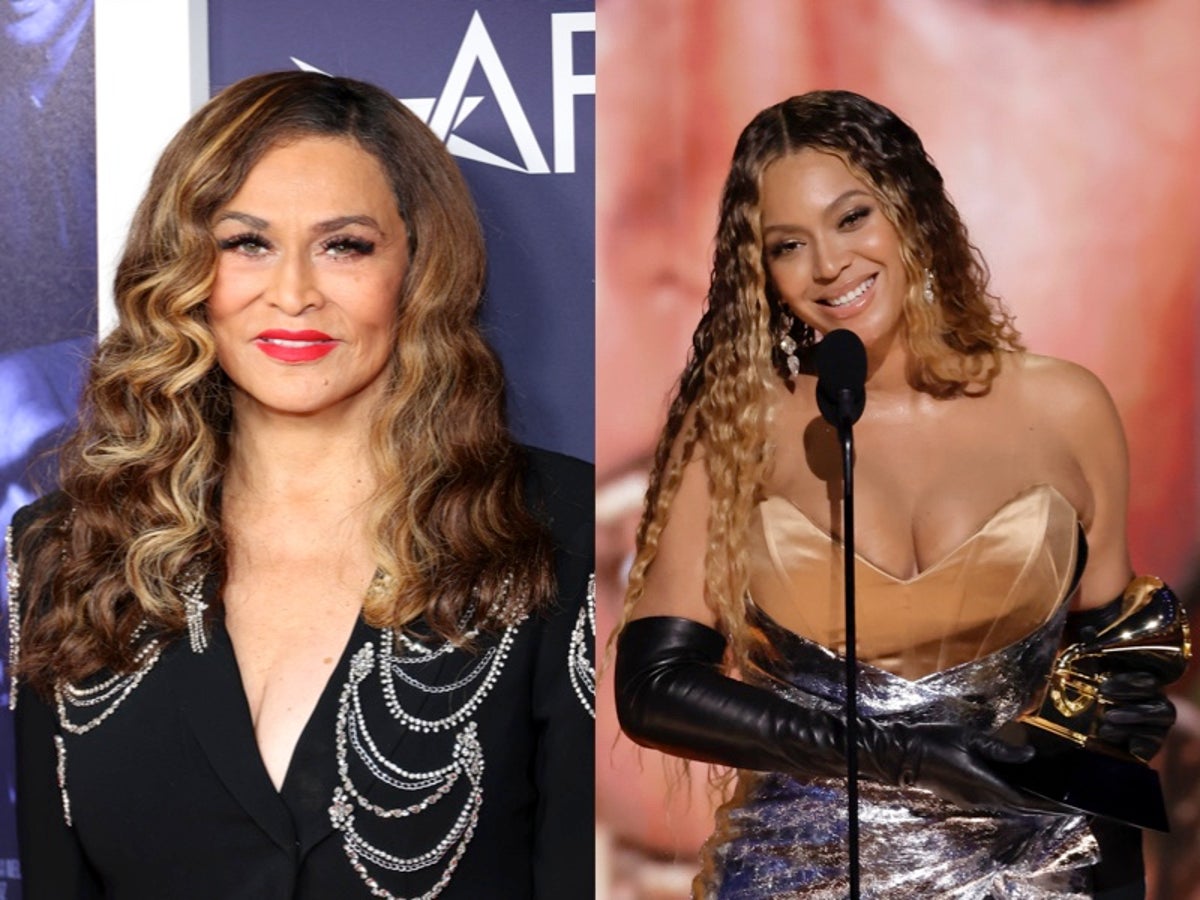
Beyonce’s mother has hit back at “ignorant” allegations her daughter lightened her skin for the premiere of her Renaissance Tour film.
On 25 November, the “Break My Soul” singer arrived at the world premiere of Renaissance: A Film by Beyoncé in Beverly Hills, California. For the event, she debuted a silver monochrome look complete with icy blonde hair - in honour of the worldwide tour’s silver, space disco dress code.
As photos of Beyoncé’s premiere outfit circulated on social media, however, many people claimed her skin colour appeared lighter than usual. Now, the superstar’s mother has addressed critics accusing Beyoncé of changing her appearance to look like a “white woman” at the movie premiere.
Tina Knowles, 69, shared a lengthy statement to Instagram on 28 November along with clips of her daughter set to her song, “Brown Skin Girl”. The clip began with on-screen text displaying negative comments shared online since the Renaissance Tour film premiere, including: “She’s not a black woman,” “She’s white now,” “It’s not Beyoncé,” and “She whitens her skin!”
In the caption, Knowles lambasted critics for perpetuating “racist” narratives and “sexist double standards”. “Came across this today and decided to post it after seeing all of the stupid, ignorant, self-hating racist statements about her lightening her skin and wearing platinum hair wanting to be white,” the fashion designer wrote. “She does a film, called the Renaissance, where the whole theme is silver with silver hair, a silver carpet, and suggested silver attire and you bozos decide that she’s trying to be a white woman and is bleaching her skin? How sad is it that some of her own people continue the stupid narrative with hate and jealousy.”
Knowles explained that her daughter “wore silver hair to match her silver dress” as a fashion statement. She also claimed that a TMZ reporter, reportedly a white woman, had reached out to Beyoncé’s hairstylist for a comment on the skin lightening speculation. “Well that made my blood boil, that this white woman felt so entitled to discuss [Beyoncé’s] Blackness,” Knowles said.
The mother of two went on to point out that many Black women have been sporting platinum hair “since the Etta James days,” referring to the legendary jazz singer who became famous in the 1950s. “I just went and looked at all the beautiful talented Black celebrities who have worn platinum hair and it has been just about everyone of them at one time or another. Are they all trying to be white?”
Knowles admitted that she’s “sick and tired” of people “attacking” her eldest daughter, adding that the 32-time Grammy winner “works her a** off” and her successful career is a “statement of her work ethic, talent, and resilience”.
“Here you sad little haters come out the woodwork,” she continued. “Jealousy and racism, sexism, double standards, you perpetuate those things instead of celebrating a sister or just ignoring if you don’t like her. I am sick of you losers.”
While the entrepreneur noted that her notoriously private daughter “is going to be pissed at me” for calling out the haters, she maintained: “But I am fed up!”
“This girl minds her own business. She helps people whenever she can. She lifts up and promotes Black women and underdogs at all times,” Knowles concluded.
Throughout her career, Beyoncé has never shied away from embracing her Blackness. In 2019, she released the hit track “Brown Skin Girl” off the album The Lion King: The Gift, which accompanied the live action remake of the original Disney animated film. The powerful message behind the song - which features the lyrics: “Brown skin girl/ Your skin just like pearls/ The best thing in the world” - launched the #BrownSkinGirlChallenge on social media, which encouraged fellow Black women to celebrate their own skin.
In a 2019 documentary special about the creation of The Lion King: The Gift album, Beyoncé spoke about the significance of seeing videos of fathers singing the song to their young daughters. “When I see fathers singing ‘Brown Skin Girl’ to their daughters, to know that my daughter can have the same opportunities and feel confident and feel like she doesn’t have to take her braids down and she can comb her afro out and she can glisten in her brown skin... That is why I make music,” she said.







